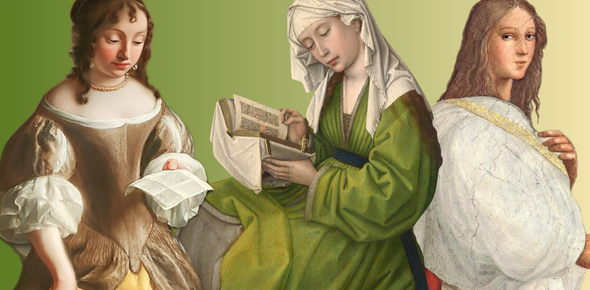
5:00pm-6:30pm on Thursday 20 March
Online
How many philosophers can you name? Even if academic philosophy is not your cup of tea, you have likely encountered the ancient Greek trio of Socrates, Plato, and Aristotle. Names like Descartes, Hume, Kant, Nietzsche or, more recently, Bertrand Russell and Ludwig Wittgenstein, might also ring a bell. If you are interested in philosophy more seriously, your list will be considerably longer and, hopefully, include thinkers from outside of Europe. But now, consider this: how many of those on your list are women? If you are not a philosopher yourself, you may know some contemporary thinkers, often associated with social and political ideas, such as Hannah Arendt, Simone de Beauvoir, Angela Davis, or Martha Nussbaum. If you are a philosopher, you likely know that the trend of studying and teaching about women philosophers from before the twentieth century is both a recent development and still somewhat limited. In this talk, we will explore why pre-contemporary women have been traditionally excluded from our histories of philosophy by examining common challenges to recognising them as philosophers. These challenges vary across periods. For instance, very few sources exist that are attributed to ancient women philosophers, while medieval women’s philosophical texts – of which we have much more – are often written in form and language that have led them to be classified as ‘mystics’ rather than philosophers. Early modern women, on the other hand, produced well-documented philosophical works resembling those of their male contemporaries, with whom they were sometimes in open dialogue; here, the primary issue seems to be their gender alone. Across periods, the unifying belief has been that the ideas and themes discussed by women philosophers were ‘not philosophical enough’ to warrant inclusion in histories of philosophy. This bias is especially clear for cultures outside Europe, whose philosophies have typically faced similar dismissal. As we will see, such assumptions are frequently unfounded.

